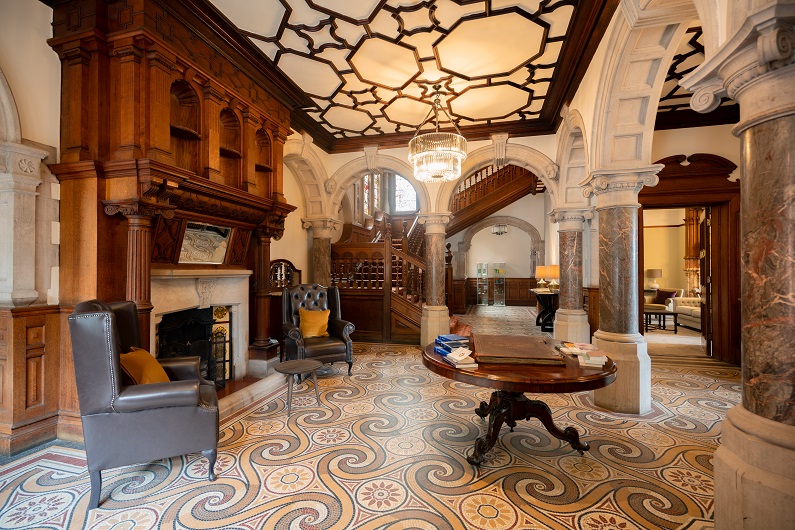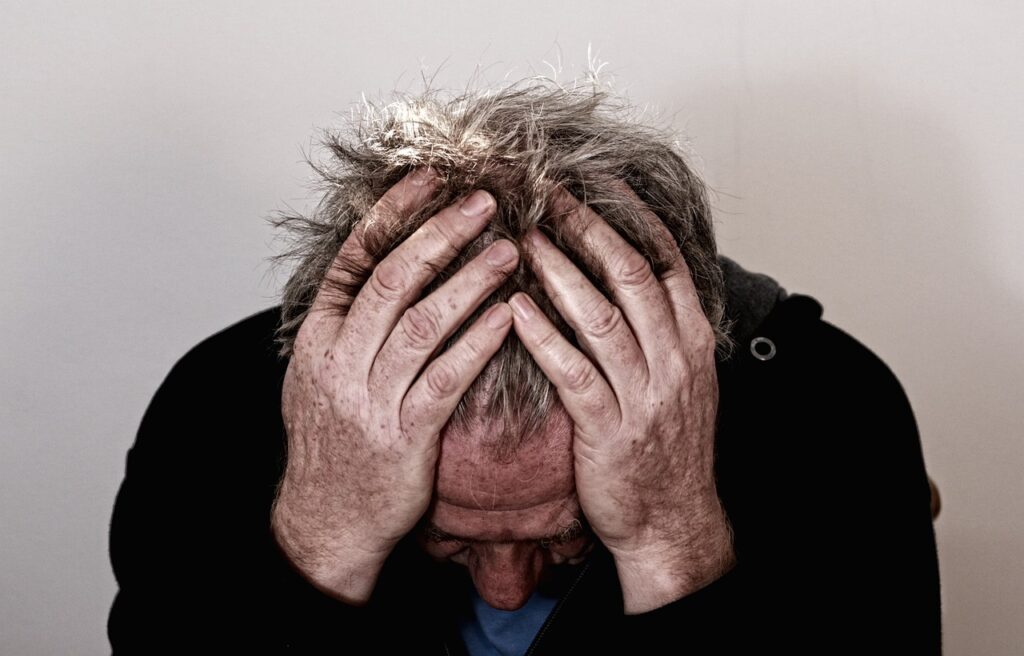20+ Years Experience
Specialist Private Alcohol Rehab

Imagine a life free from the shackles of alcohol addiction, where you can enjoy improved health, stronger relationships, and increased productivity.
The journey to recovery can be challenging, and the private alcohol rehab cost might seem like a major barrier.
This comprehensive guide will help you navigate the landscape of private alcohol rehab costs, providing you with valuable insights into rehab treatment types, facility amenities, location, and financing options.
Embark on this life-changing journey with confidence and make informed decisions for a brighter, healthier future.
When considering private alcohol rehab, it’s crucial to understand the factors that influence the cost of treatment.
The rehab cost can be affected by the type of treatment, facility amenities, and geographical location.
Inpatient rehab treatment typically starts at £3,000 per week or lower and may extend to more than £10,000 per week.
Being cognizant of these costs can help you prepare for any unforeseen circumstances and ensure that you receive the most appropriate treatment for your needs.
The type of treatment plays a significant role in the cost of inpatient rehab. Inpatient treatment and outpatient rehab are the two types of treatment available in private alcohol and drug rehab centres.
Residential rehab centres typically charge around £1,500 per week, providing medical supervision to manage withdrawal symptoms.
In contrast, outpatient rehab costs can start from £1,000 per week, making it a more economical option for individuals with mild to moderate alcohol issues who don’t experience difficulties in their home life.
Another factor that can impact the cost of private alcohol rehab is the facility’s amenities. Some luxury accommodations and additional services that can increase the cost of rehab include:
Luxury rehab facilities, offering top-quality amenities and services, can cost an estimated £10,000 per week.
The location also plays a role in the cost of private alcohol rehab. Urban centres and popular destinations tend to be more expensive.
The significance of location when considering private alcohol rehab is that it provides a refuge for healing away from the deleterious impacts of drugs and alcohol, and being in a nurturing and tranquil environment can significantly improve the recovery process.
It is important to consider the rehab cost in relation to the location.
When it comes to private alcohol rehab, there are various options available, such as residential and outpatient rehab programmes.
Each type of rehab facility offers its own set of advantages and disadvantages, so it’s essential to compare low-cost, regular, and luxury private alcohol rehab centres to determine the most suitable choice for your needs and budget.
Taking the time to research and compare different inpatient rehab centres is the best way to ensure that recovery is a success.
Low-cost private alcohol rehab centres offer basic addiction treatment options at more affordable prices, starting from £1,500 per week.
Although these centres may have limited treatment options, they can still provide high-quality care and access to a variety of therapies and support services.
A rehab clinic typically offers a range of services, including individual and group counselling, family therapy, and more.
Regular private alcohol rehab centres provide comprehensive inpatient programmes, with costs averaging around £3,000 per week.
These rehabilitation centres offer a range of therapies and support services but usually do not offer any additional amenities.
Private addiction rehab costs are more expensive than outpatient treatment, but cheaper than luxury rehab services.
Having medical professionals assist you throughout your stay at a private clinic can be very beneficial for a severe addiction.
Luxurious rehab facilities, such as luxury private alcohol rehab centres, offer upscale amenities and personalised services, with costs reaching up to £10,000 per week or more.
These rehabilitation centres provide a range of features, including private rooms, gourmet meals, and recreational activities.
Various therapies and support services are also available to ensure a more individualised approach to addiction treatment.
Therapy is a crucial component in alcohol rehab, as it helps patients understand their addiction, develop coping strategies, and maintain abstinence.
Different types of alcohol addiction treatment therapy are available, including:
Online therapy sessions can range from as low as £60 for drop-in psychiatric support to as high as £1,000 to £5,000 for structured addiction rehab programmes.
Aftercare is also essential in ensuring a successful transition from rehab to everyday life and relapse prevention.
Individual counselling is a form of therapy that focuses on the individual’s thoughts, emotions, and behaviours associated with their alcohol or drug addiction.
It helps patients understand their drug and alcohol addictions and develop coping mechanisms to lead a healthier lifestyle.
Individual counselling may consist of cognitive behavioural therapy, motivational enhancement therapy and more.
Group therapy offers numerous advantages in comparison to individual therapy, such as learning from others, heightened motivation, and a lasting support system.
It provides peer support and accountability, which can be advantageous in sustaining sobriety after rehab.
Group therapy sessions are available through local support groups, as well as in a private rehab facility offering rehabilitation treatment.
Holistic therapies, such as yoga and meditation, can complement traditional treatments and contribute to overall well-being.
These therapies take a holistic approach to health and recovery, accounting for the mind, body, and spirit.
Some of the advantages include comprehensive healing, emotional support, physical well-being, mindfulness and self-awareness, as well as reduced relapse rates and effective relapse prevention strategies.
When faced with the decision between NHS and private alcohol rehab, it’s important to consider the availability, treatment options, and costs of each option.
While NHS rehab offers free treatment for alcohol addiction, it may have limited availability and therapy options, with no access to a residential rehab centre.
On the other hand, private rehab provides immediate access to comprehensive alcohol rehab programmes but can be expensive without insurance coverage or financial assistance.
NHS rehab offers drug and alcohol detoxification support, as well as behavioural therapy sessions in an outpatient rehab setting.
The main benefit of NHS rehab is that it provides outpatient treatment free of charge.
However, there may be limited availability and therapy options, with no access to an inpatient rehab centre.
An NHS funded rehab programme is most suitable for individuals with a drug or alcohol addiction, particularly those with alcohol dependence.
Private clinics offer numerous advantages, such as private rehab treatment, which include:
However, the cost of private rehab can vary depending on the facility and the level of care provided, generally ranging from £1,500 to £10,000 per week.
Financing private alcohol rehab may seem daunting, but there are several options available to help alleviate the financial burden.
Insurance coverage, grants and scholarships, and self-funding or payment plans are all viable options for financing a rehab clinic for alcohol abuse.
Each of these options has its own set of advantages and disadvantages, making it important to assess your individual needs and financial situation when deciding on the most suitable financing option.
Insurance coverage can provide partial reimbursement for rehabilitation expenses, depending on the specific policy and treatment type.
Most private health insurance policies, including employer-sponsored plans, typically provide coverage for some or all of the rehab cost.
To determine if your private health insurance will cover private alcohol rehab costs, it’s best to contact your insurance provider directly.
Grants and scholarships are forms of financial aid designed to assist with the cost of rehabilitation.
These financial resources can help cover the cost of private alcohol rehab for eligible individuals based on specific criteria.
The application process for grants and scholarships varies, depending on the organisation offering the funding.
Self-funding and payment plans allow individuals to pay for private alcohol rehab out-of-pocket or through manageable instalments.
These payment options provide:
Payment options for a private treatment centre include cash, credit cards, loans, and payment plans.
Investing in a private treatment programme may seem like a significant financial commitment, but the long-term benefits and cost comparison with the consequences of addiction make it a worthwhile investment.
The personalised care, comprehensive treatments, and supportive environment provided by private rehab centres can significantly increase the likelihood of successful recovery and long-term sobriety.
The cost of private rehab services may be high, but it is often less expensive than the long-term financial, health, and social consequences of untreated addiction.
The long-term benefits of private treatment include improved physical and mental health, increased productivity, and stronger relationships.
Attending rehab provides individuals with the necessary tools and resources to help them manage their addiction and lead a healthier lifestyle.
This could result in enhanced focus, improved decision-making, and increased productivity.
While the cost of private alcohol rehab can be substantial, it is important to consider the long-term costs associated with addiction, such as medical bills, lost wages, and legal fees.
Investing in private alcohol rehab can aid individuals in avoiding these costs and enable them to lead a healthier, more productive life.
The benefits of private alcohol rehab are numerous. Not only does it provide a safe and supportive environment, but it also provides a supportive environment.
In conclusion, private alcohol rehab offers a comprehensive and personalised approach to treatment, with various options available to cater to different budgets and individual needs.
While the cost of private rehab services may seem daunting, the long-term benefits of investing in your health and well-being far outweigh the financial commitment.
Take the first step towards a healthier, happier, and more fulfilling life by considering private alcohol rehab as a valuable investment in your future.
Remember, the journey to recovery is challenging, but with the right support and resources, it is possible to overcome addiction and achieve lasting sobriety.
Mental health rehab in the UK typically costs between £7,000 – £10,000 for a 28-day residential placement.
Private rehab consists of various therapies and treatments along with support groups, holistic therapies and 1-1 counselling sessions.
It is effective at treating both physical and psychological addiction symptoms by combining medical detox with therapeutic treatments.
It also provides long-term results, as it takes a holistic approach to healing the mind, body and spirit.
This approach is beneficial because it addresses the underlying causes of addiction, rather than just the symptoms.
It also helps to create a safe and supportive environment for recovery, which can be difficult to achieve.
The cost of addiction to the NHS is estimated to be as much as £18.5 billion a year, with substance abuse issues alone costing £15 billion and alcohol-related harms costing £3.5 billion.
Drug treatment is also costly, with the former National Treatment Agency estimating spending of around £500 million in 2014.
The cost of private alcohol rehab is largely impacted by the type and intensity of treatment, amenities offered, and location of the facility.
These factors can vary greatly, so it is important to research the options available and find the best fit for your individual needs.
Insurance coverage can significantly reduce the cost of private alcohol rehab, as it can partially or fully cover the associated expenses depending on the policy and type of treatment.
For those who are considering an inpatient rehab facility, it is important to check with their insurance provider to see what type of coverage is available.
This can help to reduce the overall residential treatment costs and make it more affordable.
There are a range of other services that we can provide. Have a look at the list below for more information:


















We Aim To Reply To All Enquiries With-in 24-Hours